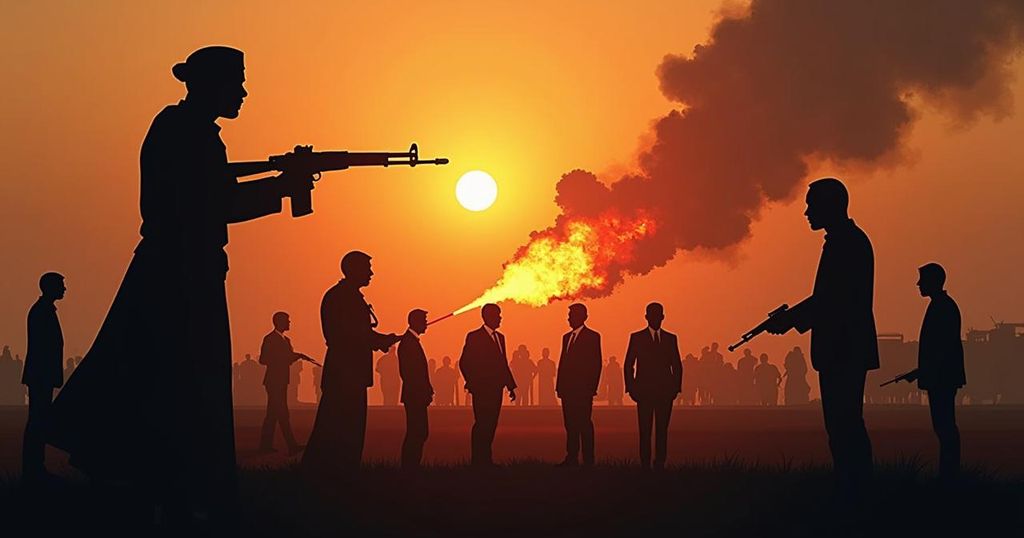UAE and Sudan Exchange Blame Following Bombing of Ambassador’s Residence
On September 30, 2024, the UAE accused Sudan’s armed forces of bombing its ambassador’s residence in Khartoum, which caused extensive damage. The Sudanese military denied the accusation, blaming the paramilitary RSF, which they allege has UAE support. This incident comes amidst a civil war that has resulted in a humanitarian crisis, highlighting tensions between the UAE and Sudan.
On September 30, 2024, a significant diplomatic incident unfolded when the United Arab Emirates (UAE) accused the Sudanese armed forces of bombing the ambassador’s residence in Khartoum. The UAE’s Foreign Ministry reported that the attack caused substantial damage to the diplomatic facility. In response, the Sudanese army refuted the claims, instead attributing the attack to the Rapid Support Forces (RSF), a paramilitary group which the Sudanese government alleges has received support from the UAE amid the ongoing civil conflict that has afflicted Sudan for over 17 months. The UAE condemned the bombing as a “heinous attack” and called on the Sudanese military to accept full responsibility, deeming the act a grave violation of diplomatic sanctity. Meanwhile, the Sudanese military asserted that it does not engage in targeting diplomatic locations and insisted that the RSF, with foreign support, is responsible for such acts of aggression. Prior accusations from the Sudanese military suggested that the RSF has benefitted from backing purportedly provided by the UAE. A UN Security Council report earlier in January had noted “credible” evidence pointing to UAE’s supply of arms to the RSF, heightening tensions between the involved parties. The ongoing conflict has resulted in a staggering humanitarian crisis, with reports indicating over 14,000 fatalities and nearly half of Sudan’s population in dire need of assistance, particularly as the RSF continues to control notable areas of Khartoum, while the Sudanese army intensifies its efforts to reclaim lost ground.
The ongoing civil war in Sudan has persisted since April 2023, resulting in catastrophic losses and widespread humanitarian distress. The conflict primarily involves the Sudanese army and the paramilitary Rapid Support Forces (RSF), which has led to accusations of foreign interference and support from other nations, notably the UAE. Tensions between the two entities escalated following an incident where the UAE’s ambassador’s residence was bombed, prompting a war of words and a complex web of allegations. The situation reflects broader geopolitical dynamics in the region and raises concerns regarding diplomatic immunity and the safety of diplomatic missions.
The recent bombing of the UAE ambassador’s residence in Khartoum has sparked a fierce exchange of accusations between the UAE and Sudan, highlighting the volatile situation in the region. The UAE’s condemnation of the attack, alongside Sudan’s rebuttal and attempts to shift blame to the RSF, underscores the deepening crisis and the potential for escalation of hostilities. With a significant humanitarian crisis unfolding, the international community is urged to pay close attention to the developments and the underlying issues affecting Sudan’s stability.
Original Source: www.dw.com




Post Comment